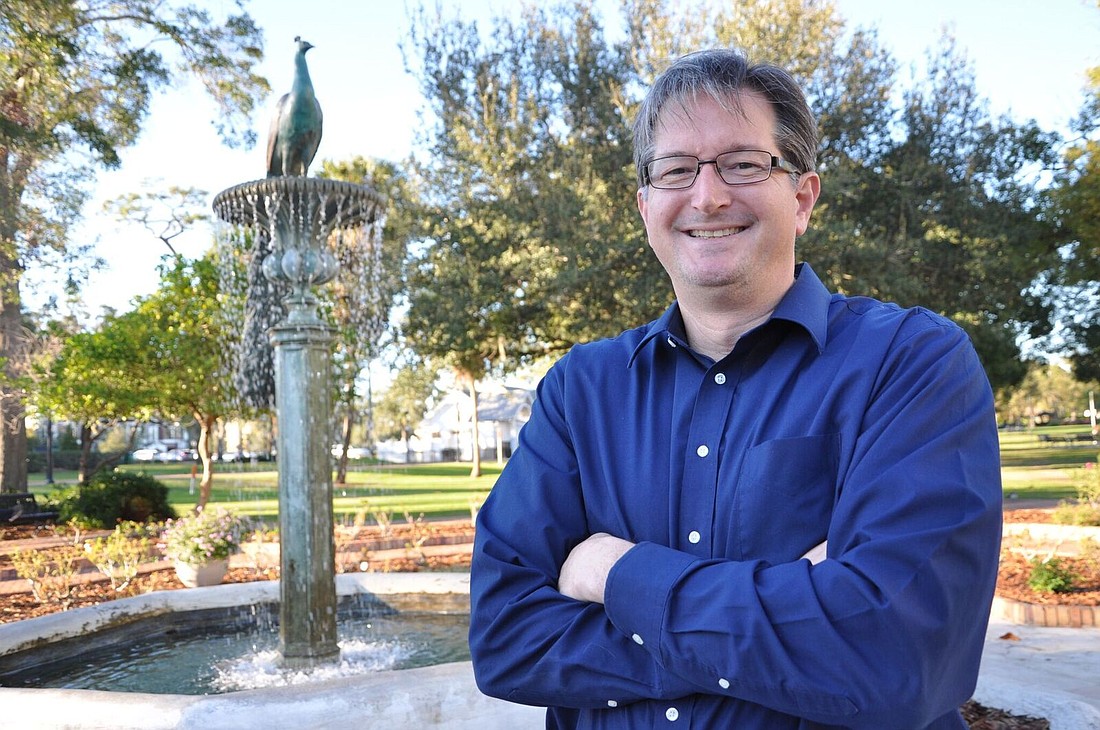- December 13, 2025
-
-
Loading

Loading

Where does Winter Park draw the line between partisan and non-partisan elections?
That’s the question City Commissioner Greg Seidel is asking in the wake of his March 14 re-election.
His opponent, Wes Naylor, had received contributions from political action committees affiliated with the Republican Party in the amount of at least $1,000, according to campaign financial reports.
It’s those kinds of contributions that seem to blur the line between partisan and non-partisan races, Seidel said.
However, according to Orange County Director of Elections Cindy Clark, it is common for candidates to accept money from political committees, and it happens frequently.
“Unless their charter says they can’t, it’s an open door,” she said.
City Clerk Cindy Bonham said the Winter Park charter specifies that races should be non-partisan, but it does not detail any penalty for running a partisan race.
“It’s well within anybody’s right, as long as they do it within the law, to endorse somebody or sponsor somebody,” Naylor said. “I believe that’s the case not only in this recent race but across a number of races. The rules are pretty plain.”
Seidel said he wants to understand the original intent of the charter provision and what exactly qualifies as a partisan race. Is it as simple as placing an “R” or a “D” beside a name on the ballot? How do campaign contributions come into play?
“My understanding was that it was non-partisan, it was supposed to be treated as non-partisan and the parties are supposed to stay out of it,” Seidel said. “That may not be the case. That’s what I’m trying to understand.
“Was the original intent for there to be no Republicans and Democrats?” he said. “Or has that been twisted? I’m trying to get those questions answered.”
Seidel said groups tied to the Democratic Party had reached out to him to see if he was interested in their support during his recent campaign. He declined.
Florida Statute 106.143 explains that “any political advertisement not paid for by a candidate, including those paid for by a political party or affiliated party committee, other than an independent expenditure, offered on behalf of a candidate must be approved in advance by the candidate.”
Statute 106.011 defines “independent expenditure” as “an expenditure by a person for the purpose of expressly advocating the election or defeat of a candidate or the approval or rejection of an issue, which expenditure is not controlled by, coordinated with or made upon consultation with, any candidate, political committee or agent of such candidate or committee.”
Last year in Maitland, a mailer from Small Business Advocacy Council arrived in mailboxes before the March 2016 election. That mailer targeted Maitland City Council candidate Mike Thomas for being in favor of raising taxes, despite his opponent Mike Dabby being in favor of the same increase. A Photoshopped picture of Thomas on the mailer showed his face with dollar signs over his eyes and the caption, “Tax Hike Mike.”
“Somebody must really want (Dabby) elected though, because someone is paying for this.” Thomas told the Observer.
A similar case happened the year before in Winter Park in the race between Steve Leary and Cynthia Mackinnon for the mayor’s seat. Mailers from the Orange County Republican Party asked voters, “Is Cynthia Mackinnon too liberal for you … or to be Winter Park’s mayor?” The flyer showed a picture of former President Barack Obama making a “shhh” gesture.
Seidel’s inquiry also begs the question: Why shouldn’t cities have partisan elections? Winter Park City Attorney Kurt Ardaman said it’s a choice each municipality and county makes.
“It’s a choice that either the citizens make if they approve a charter or the commissioners make in certain situations,” Ardaman said. “There’s both advantages and disadvantages. Some people like to have partisan races, and others don’t.”